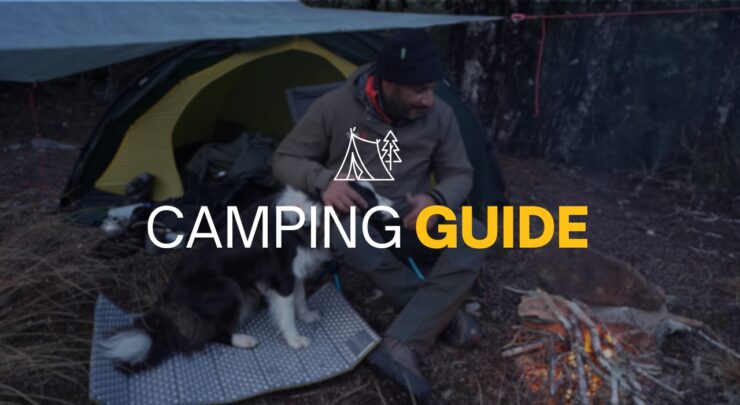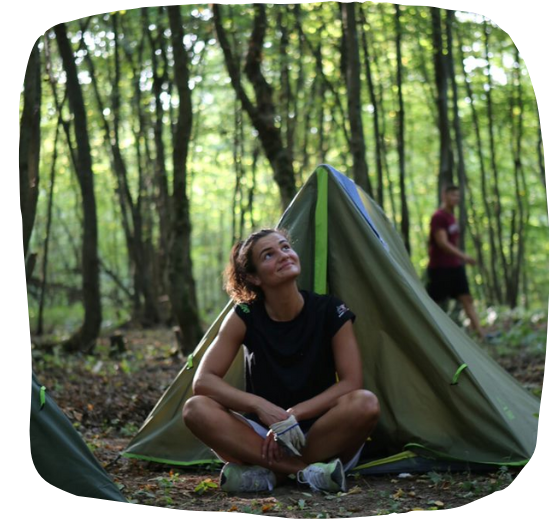Camping is an exciting adventure that allows you to escape the hustle and bustle of city life and immerse yourself in nature. Whether you’re going with friends or family, it’s a chance to create lasting memories and experience the great outdoors.
For novice campers, proper planning is essential to ensure a safe and enjoyable trip. We recommend you read more on the matter to take all the things you need.
In this article, we have provided a comprehensive guide to camping for beginners, covering all the essential aspects you need to consider for a successful and enjoyable camping trip. From choosing the perfect campsite to packing the right gear, planning meals, and exploring nature responsibly, each section has been carefully crafted to ensure a smooth flow of information and guidance.
Contents
Choosing the Perfect Campsite
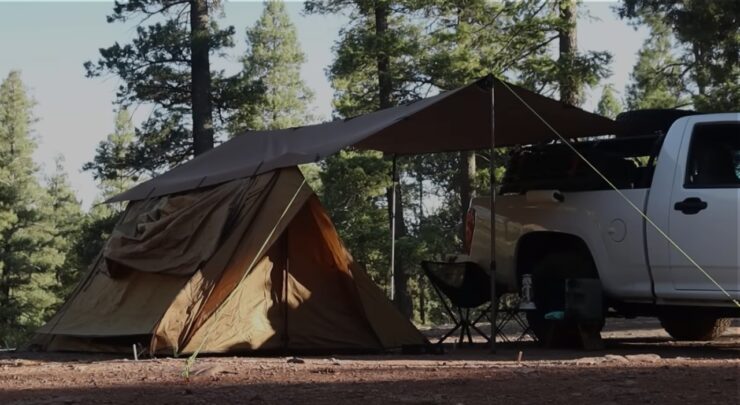
When choosing a campsite, it’s wise to opt for one that is not too far from your home, especially if it’s your first time camping. This way, you can easily reach the site without feeling exhausted before starting your adventure. Additionally, check the accessibility of the location, ensuring it’s suitable for all group members.
Being aware of the terrain and weather conditions of your chosen campsite is essential. Rocky terrains require lighter packing, while wet or cold weather demands appropriate gear and clothing. Always prioritize safety and comfort to make the most of your camping experience.
Another vital aspect to consider is wildlife and safety. Avoid camping in areas known for wild animal encounters. Research the wildlife in the region and take necessary precautions, such as proper food storage and keeping a safe distance from potentially dangerous animals.
Essential Camping Gear
Having the right gear will make your camping experience more enjoyable and comfortable. A sturdy and spacious tent is a worthwhile investment as it can accommodate all campers and protect you from the elements, ensuring a good night’s sleep and providing privacy.
Pack suitable sleeping bags and sleeping pads to ensure you stay warm and cozy throughout the night. The right sleeping gear is crucial for a restful camping experience.
Don’t forget to carry portable lights or headlamps to illuminate your campsite during the night. Packing extra batteries is a good idea to avoid running out of light when needed most.
Basic camping furniture like foldable tables and chairs will make your trip convenient. You can use them to organize supplies and enjoy meals around the campfire.
Planning Your Attire
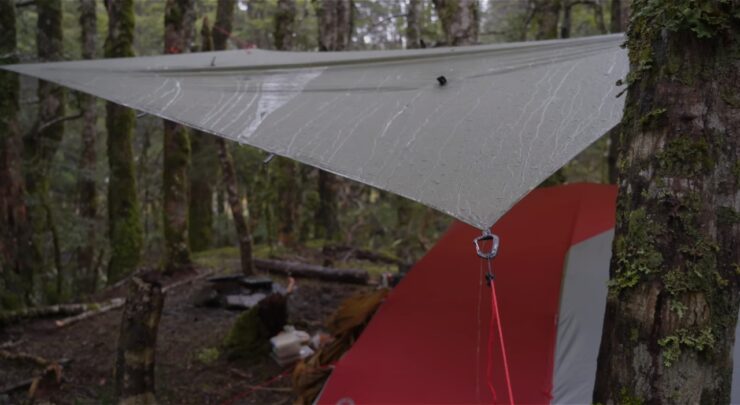
Pack clothes suitable for the expected weather conditions. Bring raincoats or umbrellas for cloudy or rainy days and warm layers, gloves, and beanies for cold nights. Wear durable and comfortable boots to protect your feet during hikes and other activities. Avoid wearing delicate shoes that can get easily damaged in rugged terrains.
Essential Supplies
Protect your skin from harmful UV rays by applying sunscreen regularly, especially on sunny days. Keep pesky bugs at bay by carrying bug repellents. It will help you enjoy a peaceful night’s sleep without the buzzing distractions.
Furthermore, always have a well-stocked first aid kit with bandages, ointments, and antiseptics to handle minor injuries or emergencies.
Planning Your Meals

Opt for easy-to-cook recipes that require minimal ingredients and preparation. Stews, grilled fish, or simple campfire dishes work well.
Moreover, invest in portable camping stoves or consider traditional campfire cooking. Be patient, as cooking might take longer than usual without a proper stove. Bring snacks and s’mores to keep everyone energized and entertained while waiting for the meals to cook.
Campsite Setup and Safety
Upon reaching your chosen campsite, the first order of business is setting up your campsite correctly to ensure a safe and comfortable stay. Follow these steps for a well-prepared camping experience:
- Begin by clearing the area of any debris or sharp objects that could puncture your tent or cause accidents. Check the ground for rocks, sticks, and any other hazards before pitching your tent.
- When selecting a spot for your tent, prioritize level ground to avoid discomfort during sleep. Clear away any rocks or debris to create a smoother surface if the ground is uneven.
- Next, establish a designated area for cooking. Keep this area at a safe distance from the tents to prevent fire hazards. If the campsite already has a fire ring or fire pit, use it for cooking. Otherwise, create a safe fire area by clearing away any flammable materials.
- Remember to establish a separate area for waste disposal. Always follow Leave No Trace principles and pack out all trash, leaving the campsite cleaner than you found.
Exploring Nature Responsibly
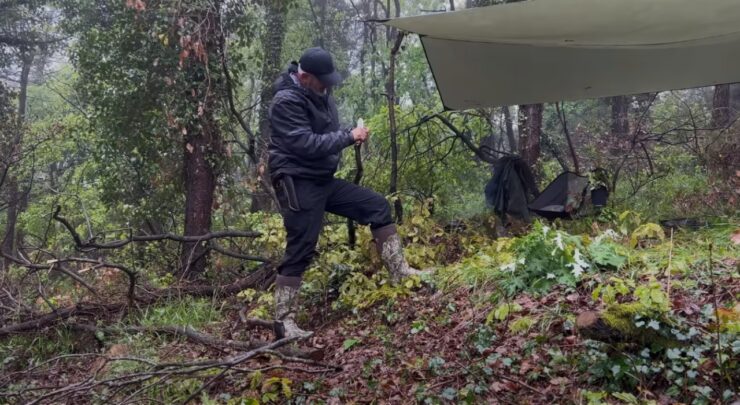
Responsible camping involves minimizing your impact on the environment and respecting the natural world around you.
Follow the “Leave No Trace” principles by packing all trash and waste. You must ensure to leave the campsite as pristine as you found it so that others can enjoy its beauty too.
Respect wildlife and observe animals from a safe distance. Avoid feeding or approaching wild animals, as it can disrupt their natural behavior and pose risks to humans and nature.
Campsite Entertainment and Bonding
Camping is not just about survival; it’s about creating beautiful memories with your companions. Make the most of your camping experience through fun activities.
For instance, bring portable games like frisbees, footballs, or board games to enjoy with friends and family. Outdoor games can be a fantastic way to bond and have a good time.
The campfire provides the perfect setting for bonding and storytelling, so encourage each other to share their favorite camping memories or childhood stories. It’s an excellent way to learn more about each other and create a sense of camaraderie.
Dealing with Unforeseen Circumstances
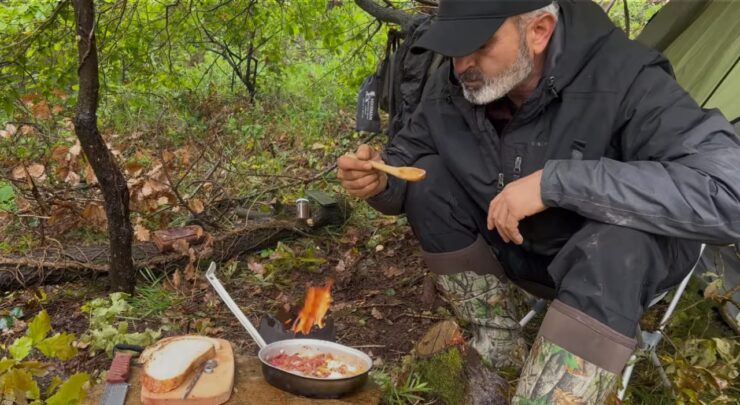
Nature can be unpredictable, so it’s essential to be prepared for unexpected changes:
- Pack extra layers, including rain gear and warm clothing, even if the weather forecast looks favorable. Weather conditions in nature can change rapidly and it’s better to be safe than sorry.
- Stay updated on weather forecasts through portable devices or a battery-powered radio. Knowing what weather to expect can help you plan your activities and prepare for any challenges.
Final Note
As a beginner, embarking on a camping trip can be an enriching and fulfilling adventure. By following the measures outlined in this comprehensive article, you can ensure a safe, enjoyable, and unforgettable camping experience.
As you immerse yourself in the beauty of the great outdoors, remember to cherish the moments, respect nature and leave the campsite better than you found it. Happy camping!

